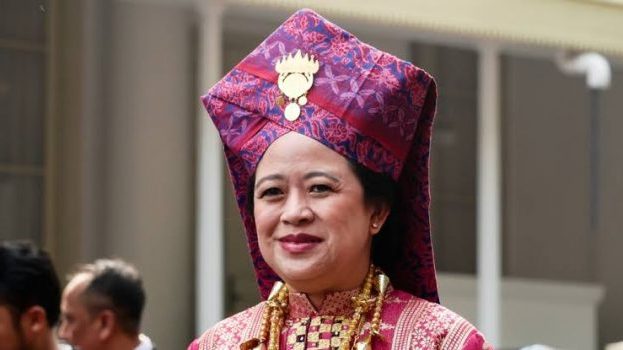 Indonesia’s new Parliament on Tuesday unanimously elected and swore in Puan Maharani as the country’s first female Speaker of the House of Representatives.
Indonesia’s new Parliament on Tuesday unanimously elected and swore in Puan Maharani as the country’s first female Speaker of the House of Representatives.
The swearing in of the 46-year-old Maharani is coming amid sometimes-violent protests against several new or proposed laws, including one which weakens the country’s anti-corruption agency.
Maharani, a member of the Indonesian Democratic Party of Struggle, the largest party in Parliament known by its Indonesian initials of PDIP had served as coordinating Minister for Human Development and Cultural Affairs in President Joko Widodo’s cabinet since 2014.
She is also the daughter of former President and current PDIP leader, Megawati Soekarnoputri and a granddaughter of Indonesian founding President Sukarno.
Tuesday’s ceremony included 575 lawmakers from nine political parties. The lawmakers will be under immediate pressure to revisit the controversial legislation, including a proposed new criminal code as well as bills on mining, land and labour.
Security was especially tight in the capital, Jakarta where authorities blocked streets leading to the Parliament building, with 24,000 policemen and soldiers deployed to secure key locations, including the presidential palace.
However, demonstrations were largely peaceful in Jakarta where about a thousand university students gave flowers to several riot police and marines.
They also tossed flower petals into a mock grave bearing the names of two student protesters who died in violent clashes in Kendari city on Sulawesi island last week.
Indonesians had gone to the polls in April to vote for the president, members of Parliament as well as provincial and regional legislative councils.
Widodo won a second five-year term. He and his allies control more than 65 percent of the seats in the House, more than the number during his first term in office.
The ongoing protests and the legislation which sparked them could however threaten Widodo’s credibility after he campaigned on a platform of clean governance.
Protesters are enraged that the outgoing Parliament passed a law last month which reduced the authority of the Corruption Eradication Commission, a key agency fighting endemic graft in the country and one of the nation’s most trusted institutions.
Hundreds of officials from various branches of government have been arrested since the independent anti-graft commission was established in 2002 as a response to public outcry against graft and corruption particularly in government and the public service.
Protesters also demanded that the new lawmakers changed parts of a proposed new criminal code which would criminalize criticism of the president and increase penalties for a variety of sexual activities.
Critics however say the bill violates the rights of women, religious minorities, lesbians, gays, bisexual and transgender people and curtails freedom of expression and association.

Nguema Wins Gabon Presidential Election With Overwhelming Majority
Algeria Orders Expulsion Of French Diplomats, Raising Tensions With France
Suspected United States Strikes Kill Six In Yemen — Houthis
Trump’s Massive Tariffs Take Effect, Deepening Global Trade War